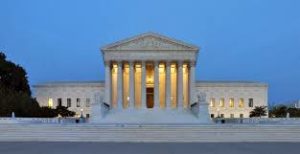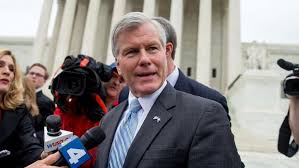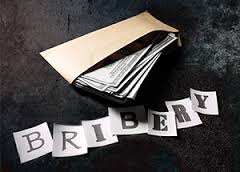The McDonnell Case: Supreme Court Weighs Limiting Bribery Statute
 We all suffer from a little myopia. Following FCPA enforcement and compliance issues makes a lot of sense in today’s enforcement environment. However, there is plenty of domestic enforcement of bribery laws – the New York corruption investigations and prosecutions and the recent high-profile prosecution of Virginia Governor McDonnell are just a few of the high profile domestic prosecutions.
We all suffer from a little myopia. Following FCPA enforcement and compliance issues makes a lot of sense in today’s enforcement environment. However, there is plenty of domestic enforcement of bribery laws – the New York corruption investigations and prosecutions and the recent high-profile prosecution of Virginia Governor McDonnell are just a few of the high profile domestic prosecutions.
The Supreme Court recently heard argument in the Governor McDonnell case and from all reports is getting ready to reverse the convictions and restrict the application of the bribery statute. The Supreme Court’s intent was pretty clear first when they granted certiorari to hear the case and second when they permitted Governor McDonnell to remain on bond pending resolution. These two acts make it pretty clear the Supreme Court was getting ready to reverse the case.
The facts are interesting – Governor McDonnell and his wife were convicted of various corruption counts for receiving a number of extravagant gifts from a businessman, Jonnie Williams, in exchange for the McDonnell’s promoting Williams’ dietary supplements in the Virginia government.
The argument, at the Supreme Court, boiled down to whether the McDonnell’s actions constituted “official acts” under a very broad definition in the bribery statute. During the argument, there were a number of tough questions asked as to what exactly constitutes an “official act” and the implications of a broad reading of the statute.
For example, if a person took a Senator to dinner and the Senator then wrote a letter to an agency on behalf of the individual in support of the individual’s position in an agency matter, would that constitute bribery and an “official act,” i.e. the sending of the letter?
Or another hypothetical posed by the Court: if the individual took the scheduler for a Senator to lunch and then asked for a meeting with the Senator, would that constitute a bribe and an “official act”?
Most of the Justices were not impressed with the facts in the McDonnell case because Governor McDonnell made introductions to government officials for Jonnie Williams but never directed or ordered the government officials to take certain actions with regard to the dietary supplements.
The difficult point in this case is drawing the line on government actions that may be contrary to the government official’s duties and responsibilities. The gifts to Governor McDonnell resulted in Jonnie Williams gaining access to other government officials, but is that enough of a benefit to constitute a prohibited quid pro quo. The fact that an individual gains access over others and gains such access through gifts and other benefits to a government official appears to be the kind of behavior the statute is designed to prohibit.
In the end, the government had two basic arguments. These will sound familiar to those who follow FCPA enforcement matters.
First, the government contended that, while the statute was broadly written, the requirement for “corrupt intent” and an actual quid pro quo was a limiting factor in the application of the statute to real life situations that occur frequently. The question then boils down to whether the defendant acted with “corrupt intent.” The government’s contention is that Governor McDonnell acted with corrupt intent in securing favorable access for Jonnie Williams in exchange for the gifts and other benefits he received.
 Second, the government argued that prosecutors will exercise discretion to avoid bringing cases that may technically fall within the statute but that were clearly not the prime consideration when Congress enacted the statute.
Second, the government argued that prosecutors will exercise discretion to avoid bringing cases that may technically fall within the statute but that were clearly not the prime consideration when Congress enacted the statute.
This latter point is at the heart of this matter. Justice Breyer and other Justices echoed a key separation of powers concern. They were not comfortable permitting the Executive Branch to exercise prosecutorial discretion against legislators where there is such a broad grey area for application of the statute. In other words, there is plenty of room for misconduct when prosecutors can prosecute legislators for bribery cases outside the heartland of the statute.
The Supreme Court’s decision will be interesting because it has to decide on a refined interpretation of what constitutes an “official act.” In crafting such a decision, the Supreme Court could potentially end up permitting conduct that most people will find troubling.
















We’ve been here before: McNally, Skilling and the mail/wire fraud statutes and loyal services prosecutions. The challenge for the Court is how to craft a limitation for governmental misconduct that doesn’t exist when other actors are the defendants. The mail and wire fraud statutes are of necessity broad because the types of conduct they intended to control represent virtually endless creativity on the part of charged defendants in devising their “schemes or artifice to defraud”. The courts have been relatively generous in allowing creative applications of these fraud statutes for regular folks who engage in schemes designed to obtain money or other value through nefarious means. One could make the argument that government officials are no less creative in devising ways for those with whom they interact to enrich them in ways potentially detrimental to generally accepted notions of proper governmental functioning. In resolving this issue, there is no reason to differentiate between the defendant who is prosecuted for unduly influencing a purchasing agent to buy the defendant’s inferior product by paying a kickback, and the government official who accomplishes the same thing by “introducing” the seller, carrying the imprimatur inherent in the introduction by a powerful official, because the official received gifts or other value. While there is merit in the concerns about overbreadth, extreme care must be taken not to handcuff prosecutors who properly serve as a control mechanism on corrupt legislators or executive branch members. Separation of powers shouldn’t be taken to mean each branch has to have its own police and prosecutors to satisfy the Constitution. Indeed, wouldn’t it raise equal protection issues to have such divergent standards for Governor McDonnell vs. ordinary fraudster John Doe?